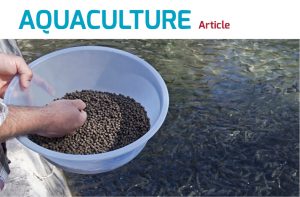


Plant-based aquaculture feeds and amino acid supplementation. Fishmeal has been the preferred protein source in aquatic feed formulations, but it is becoming less available and more expensive. Cheaper plant-based protein sources have been popularised within the aquaculture feed industry, particularly soybean- and corn-based meals. Although the crude protein content of plant-based ingredients might be comparable to that of fishmeal, such ingredients are generally less digestible and deficient in one or more essential amino acids (EAA). In particular, soybean meal-based aquafeeds are deficient in total sulfur amino acids (TSAA) and cornmeal-based aquafeeds are deficient in lysine (Lys).
Moreover, deficiency in TSAA increases with increasing levels of plant ingredients in aquafeed formulations (Goff and Gatlin III, 2004). Thus, crystalline amino acids, mainly Lys and methionine (Met), are increasingly being used to fill EAA deficiencies in plant-based aquafeeds in order to sustain protein synthesis and optimal performance. Because Met is a precursor of cysteine (Cys), the levels of dietary Cys will affect the requirement of dietary Met. Thus, these two EAA show overlapping functions, and many studies determine the TSAA requirement (i.e., Met + Cys) instead of the Met requirement alone [National Research Council (NRC), 2011].